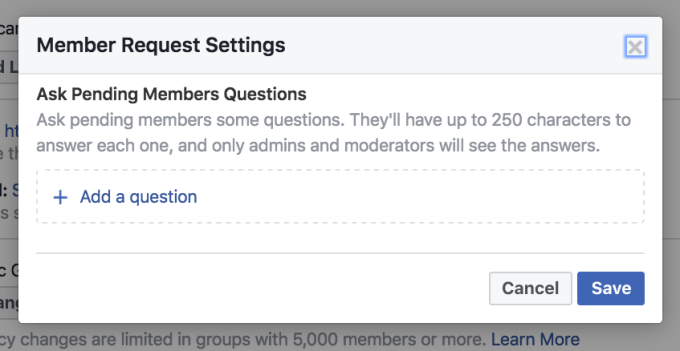FACEBOOK GROUP CAN NOW SCREEN NEW MEMBERS WITH QUESTIONS
Facebook is
making good on Mark Zuckerberg’s promise to build community by improving admin
tools for Facebook Groups. Now Group admins can establish up to three questions
for people requesting to join their Group to answer. This lets admins screen
potential members to ensure they’re the right fit for the group and will add
constructively to the discussion, not just spam or troll the Group.
Facebook says
this feature is now rolled out to 100% of group admins globally. A Facebook
spokesperson told TechCrunch:

“Screening new membership requests requires
time and legwork for admins – particularly for groups built around focused
passions or purpose. For these groups, admins typically have specific criteria
they require before admitting new members. Establishing these open-ended
questions enables them to more quickly review and approve member requests; in
turn, people seeking communities of support or shared interest can more quickly
connect with others.”
Group Admins can
find the “Ask Pending Members Questions” option in their Group’s settings menu.
They then have the option to great up to 3 questions that potential members can
answer in up to 250 characters each. Only admins and moderators see the answers
to the questions, which are not posted to the group. Users who hit “Join” on a
Group with a questionnaire will be asked to fill it out immediately, while
those invited to join will get a notification linked to the form. Applicants
can edit their answers until they’re reviewed.
Back in
February, Zuckerberg wrote that “One of the things that we’ve seen in online
communities, but also including offline communities, is that having an engaged
and talented leader is one of the key things for making a strong community … but
right now our Groups product hasn’t really been built to facilitate the
leaders.”
Allowing Group
leaders to define these questions and select who to admit based on the answers
gives them much more control. It could lead to more productive discussion and
less of the kind of disruption and needless posts that can cause members to
turn off the notifications for a Group.
Source: TechCrunch
0 comments